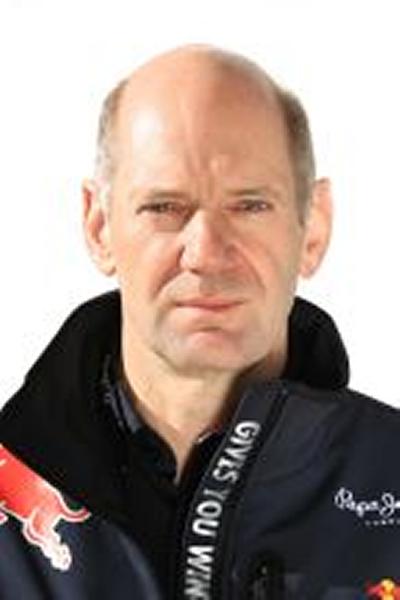Adrian Newey, the world’s most successful Formula One car designer, tells us about his experiences as a Southampton student and life after Southampton.

Adrian Newey, the world’s most successful Formula One car designer, tells us about his experiences as a Southampton student and life after Southampton.
What made you choose Southampton?
At six years old, I knew that I wanted to be a motor racing engineer. I chose Southampton because I figured that a degree in aeronautical engineering would give me the skills I needed to learn about racing cars and I was aware that Southampton had a long affiliation and direct contact with racing teams.
What were your first impressions?
I loved the practical elements of the degree course. Southampton has good laboratories and the experiments were fascinating to me. My first year was difficult because I struggled with maths; around Christmas I had contemplated quitting. A lecturer in my department, Ken Bergin, encouraged me to stay. He was an inspiration throughout my degree; and as I progressed through the course, I enjoyed it more and more. In third year students do design projects, but the University only allowed one motor-oriented project at the time. Ken made sure I got that project, which really helped to cement my desire to work in motor sports.
How did your time at Southampton influence your life and your career?
My degree from Southampton gave me a competitive edge. It also filled a critical skills gap because I had just done a final project on ground-effect aerodynamics on racing cars, in which not many people in F1 had had training at that time.
At the time, motor racing was not a recognised industry and job opportunities were scarce. F1 teams only employed a handful of engineers. I did the milk round, applied to all the teams and, just when I thought I would have to consider other options, I was offered a job.
Is there anything that you have found out about the University recently that has surprised you?
I’ve been impressed by Southampton’s sensible and structured growth over the years. I’m proud that it is seen as a top UK university. Many of the graduates we recruit to Red Bull are from Southampton. This is not because of any loyalty on my part, but because Southampton graduates consistently produce better CVs, interview well and bring the right skills to the table.
What do you enjoy most about your work?
I love the immediacy of our field. In our job what we are working on now we will see realised within a matter of months or hours, whether that is good or bad, or for all the world to see. In other fields it could take years to see your work come to fruition.
We are constantly trying to marry fresh, creative ideas that will stand the test of physics. In previous positions I have come into a more mature team and provided the design-based expertise. At Red Bull we worked to build the infrastructure and the research-oriented side of the engineering from the ground up before we had the tools to design a car.
What motivates you?
The opportunity to focus on designing the car. I delegate as much as I can so that 50 per cent of my time can be at my drawing board sketching and developing ideas.
What are you most proud of?
The championships we have won at Red Bull. It has always been a dream to win, but often our dreams are not fulfilled. To be able to win with Red Bull has been fantastic.
Do you have any tips for new graduates?
I realise this is a difficult time to be a graduate and it’s also a tough job market. If you are not fortunate enough to get your dream job, then accept a position that is close and will put you in the job market and keep striving towards your goal. I’m not a big fan of endless gap years – I think you need to get out and get on with it to decide what your next step is going to be.
Can you sum up your Southampton experience in three words?
Key formative years.